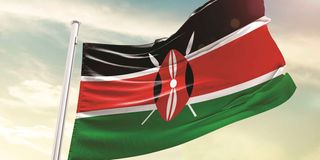
The real tragedy is that given half a chance, the average Kenyan would not want to reform the system.
The annual Economic Survey and the ugly picture it paints is only a hint of the profoundly terrifying moment many Kenyans are living through. The bottom seems to have fallen out of our lives.
The abjectly poor are no longer just peasants and squatters, poverty has taken root among professionals and small business owners. These days it is perfectly normal for solid professional or business people to call in tears because they can’t figure out what to do: the banks want to auction the property of those who have been running their business on overdraft, or they can’t pay school fees for their children. I heard the story of an ordinarily busy surveyor’s office that has done just one transaction in a whole year.
As a farmer, I’m seriously thinking of selling my cattle and fallowing my land. A school owes me Sh800,000 for maize supplies (and they are asking for more) and being paid is going to be a tall order. I’m unlikely to top-dress this season’s crop because I can’t afford fertilizer at Sh4,000 a 50kg bag from a reputable retailer. I suppose I could get it cheaper from the government, but with the government you don’t know what you are getting. It could be donkey droppings mixed with rocks.
The divide between the people and the elite is getting wider. As the people struggle, the elite become more profligate: renovating premises at bloated expenses, planting new international airports, spending billions on land to dish out on a whim and living large.
Cartel of foreign interests
You have seen MPs swathed in these ridiculous double-breasted Brioni suits that can go for a as much as €5,000 (about Sh700,000), other people wearing Sh100,000 casual shoes or show-offs “gifting” themselves ultra-expensive vehicles every now and then. Someone spent Sh3 billion, or $10 million on apartments in Dubai in the last fortnight. Does Warren Buffet now live in Kenya?
Kenya today is like a scene from feeding time: a pack of gorging crocodiles surrounded by a sea of hungry humanity, our empty plates in hand. And this is not a personality issue you can blame solely on the current regime, or temporary anomaly, it is a structural defect that has festered.
Our elections are themselves something of a corrupt deal. We give the candidates our votes in exchange for handouts, alcohol, drugs and promises, or to buy a place on the feeding trough for our tribe’s big crocodile. As a result, elections have become fearsomely expensive, no ordinary person could win.
They take a cartel of foreign interests and wealthy barons to put up the cost. And once won, the winner—if he has a conscience, I suppose—opens the national safe and runs to hide in an adjacent room as the cartel loots. If he is a regular guy, he joins the merry-making. The funders and supporters get the chance to pick nominees for prime jobs, not based on competence, but blood relationship and tribalism.
And because we are up to our armpits in debt, and borrowing like crazy, what they will be eating is not today’s income, it is also tomorrows’ income, mortgaging us all the way to 2036 and beyond. We are broke today and guaranteed of being broke tomorrow.
Dismantle corrupt politics
We are in danger of becoming so deformed that our governments are no longer governments of the people, by the people and for the people, but governments of the cartels by the cartels and for the cartels. Don’t be surprised if the most ridiculous barons offer themselves at the next election, just to tighten their grip on the national jugular.
The real tragedy is that given half a chance, the average Kenyan would not want to reform the system. They just want in on the eating. That’s why you find activists, who have traded on their “integrity” and reform credentials all their lives, will crawl 10 miles for the humblest place at the dining table, offering their skills and talents, not in the service of the people, but of their greed.
And that, is the challenge of the next election: to dismantle this corrupt system and replace it with a lean, efficient, more honest structure that can create prosperity and security for us and our children. This is what President William Ruto promised at the last election with all that bottom-up business and the pledge to have a judicial commission of inquiry into State capture.
The promise of Kenya today lies in its ability, such as it is, to change itself, to create a completely new nation, a simpler, more honest, more efficient, more patriotic and prouder nation. In a word, to midwife a popular, peaceful revolution to restore equality of opportunity and before the law, to protect rights and public wealth, to make honest, smart choices for the nation’s benefit, to protect its reputation, place in the world and its future. Just like it rebelled against the one-party system, it must dismantle the emergent corrupt politics.
When I talk to young people, they don’t want a recreation of the Moi, Uhuru or Ruto systems, they want a completely new house which has room for their energy, competitiveness, comradeship and enthusiasm. They want a competent reformer to lead and guide them: that’s why they were so receptive to Mr Ruto in 2022 and why they now pay keen attention to Dr Fred Matiang’i, Mr Justice David Maraga, assuming he is not a trojan horse, Senator Okiya Omtatah, and others, as their competent reformers to build a new house.
So, we are buggered, but there is hope.







